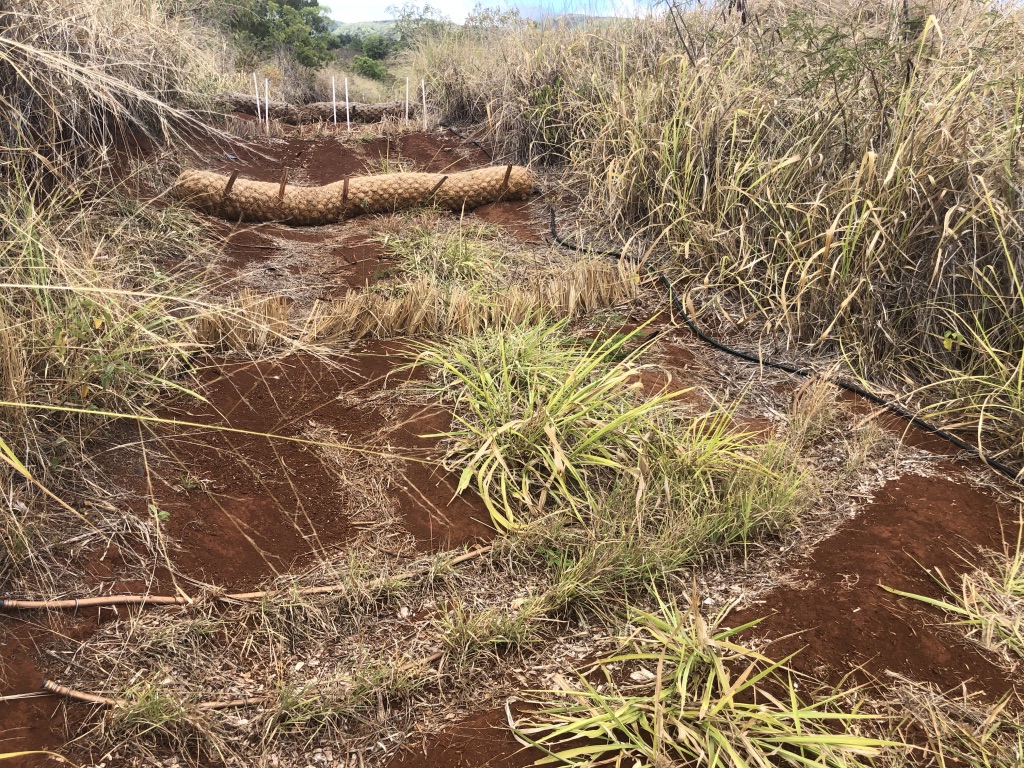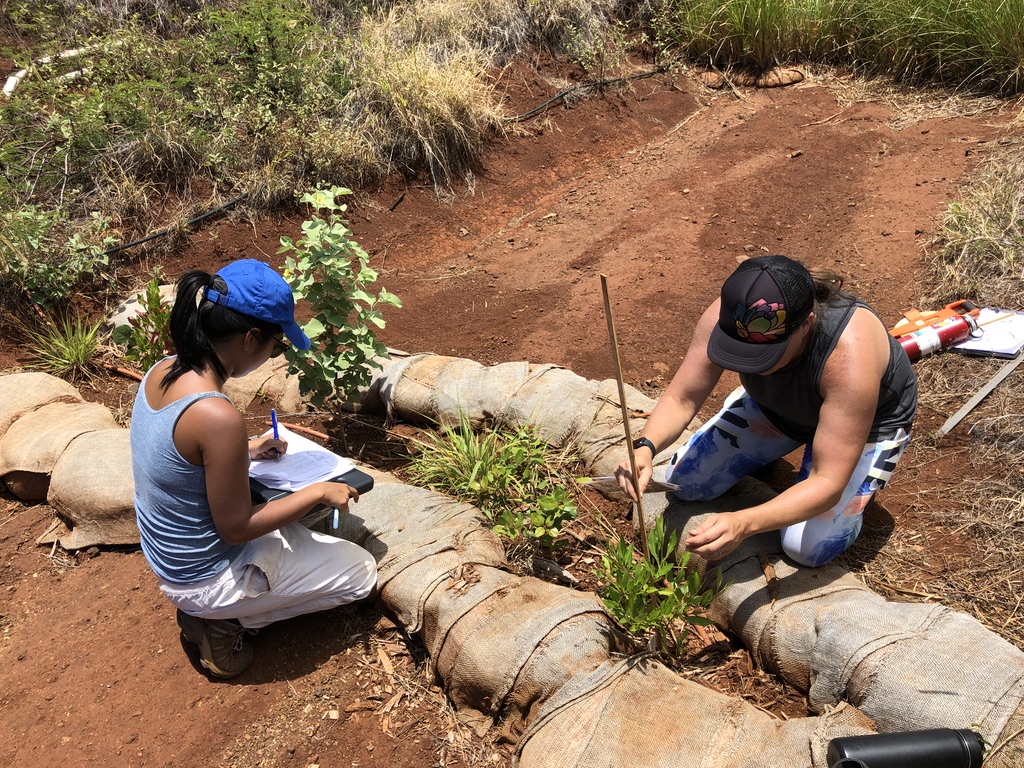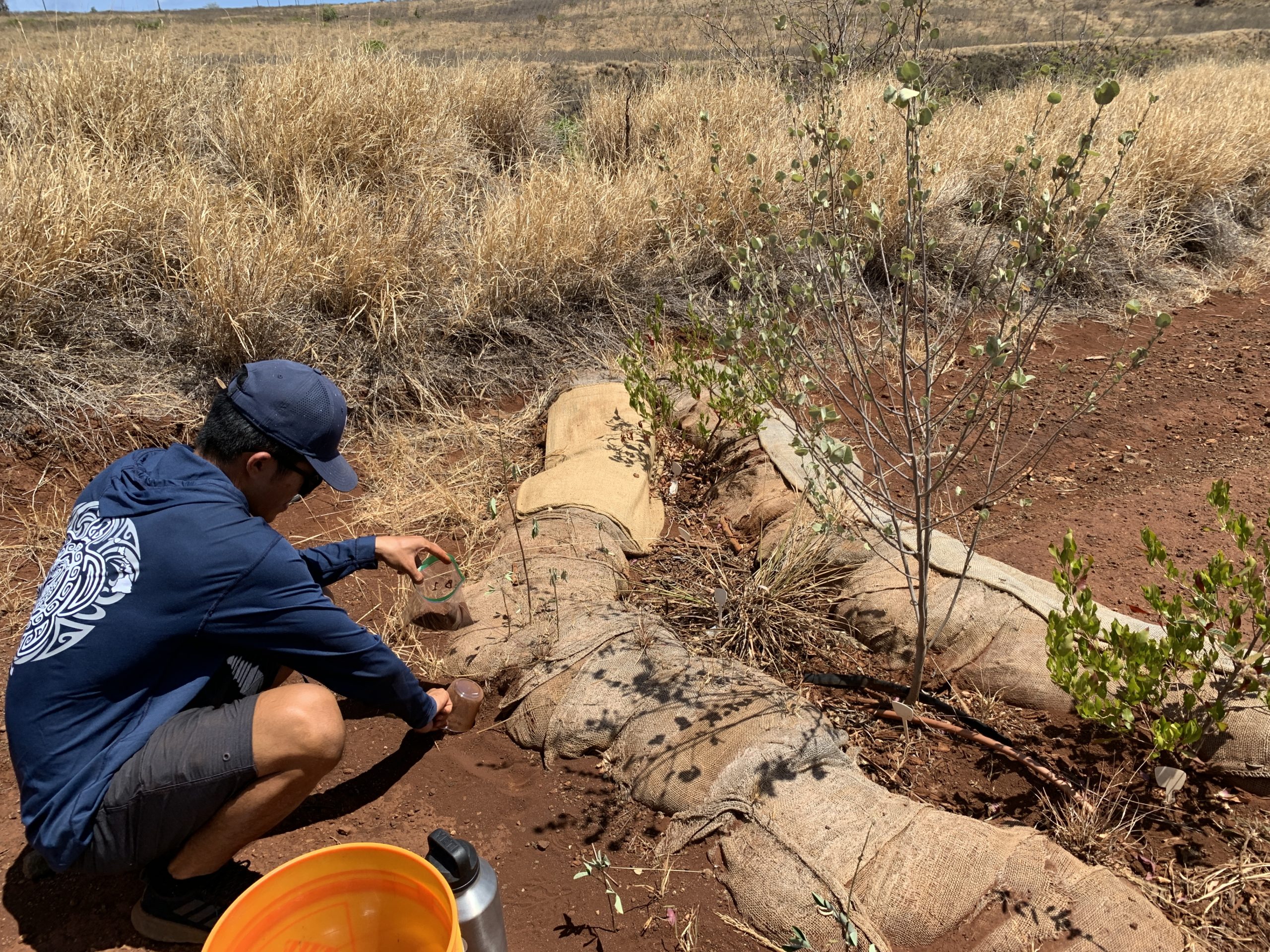Over 20 tons of sediment has been captured in the mountains above Lahaina, the result of a collaborative restoration project led by the Coral Reef Alliance (CORAL).
West Maui is laden with historic sugarcane and pineapple plantations that are now out-of-use. During heavy rain events, the potentially contaminated soil from these degraded landscapes travels down old dirt roads, enters stream gulches, and ultimately reaches the ocean where it smothers coral reefs.
CORAL uses native plants—and over 100 supportive volunteers—to restore the degraded landscapes and trap the sediment before it has a chance to runoff into the ocean.

“This past year alone, our restoration projects have trapped over 20 tons of sediment that would have ultimately ended up on our coral reefs,” says Jen Vander Veur, CORAL’s Senior Program Manager on Maui. “That’s the equivalent weight of 10 cars. It’s so great seeing all of our hard work pay off.”
And that’s just the beginning—as the plants grow and the sediment traps continue to accumulate materials, their efficiency will grow.
“Ultimately, as our traps collect sediment, that sediment will fill in openings and slow the stormwater even further, trapping more sediment, and so on and so on,” says Vander Veur. “And the more sediment we can keep off of Maui’s reefs the better.”
Most hard corals are hosts to zooxanthellae, tiny algae with which they share a symbiotic relationship. Corals provide the algae with protected environments, and in exchange, the algae use the sun to photosynthesize and produce oxygen, and help the corals remove waste. When sediment is dumped on a coral, it blocks out the necessary sunlight to support this process and corals ultimately die.
West Maui’s coral reefs are important sources of coral larvae that replenish reefs across Maui, Lanai and Molokai. Because of this, the area has been designated a priority conservation site by the U.S. Coral Reef Task Force and the Hawai‘i Department of Land and Natural Resources.
But a 2012 Wahikuli-Honokowai Watershed Management Plan prepared for the National Oceanic and Atmospheric Administration (NOAA) Coral Reef Conservation Program identified erosion from degraded agricultural lands as a major threat to these vital coral reef ecosystems.

Funded in part by the Hawai‘i Department of Health, CORAL’s program is part of a larger collaboration of community organizations who are working to restore these lands and stabilize the slope.
“It’s great that there is such strong community and governmental support to protect these reefs,” says Vander Veur. “Even with COVID putting a pause to our in-person volunteer planting days, our volunteers have continued to keep this project moving forward.
Over 100 volunteers are growing native plants from home during the COVID-19 pandemic, and that number continues to grow. Once grown, volunteers drop their plants off at a greenhouse space donated to CORAL by Pacific Biodiesel, where they stay until they are ultimately planted at the restoration sites.
Volunteers interested in helping with this project should contact Larissa Treese at ltreese@coral.org.
This project has been funded wholly or in part by the United States Environmental Protection Agency (“EPA”) under assistance agreements C9-96978718-0 and C9-9697819-0 to the Hawai‘i State Department of Health, Clean Water Branch. The contents of this document do not necessarily reflect the views and policies of the EPA, nor does the EPA endorse trade names or recommend the use of commercial products mentioned in this document.
